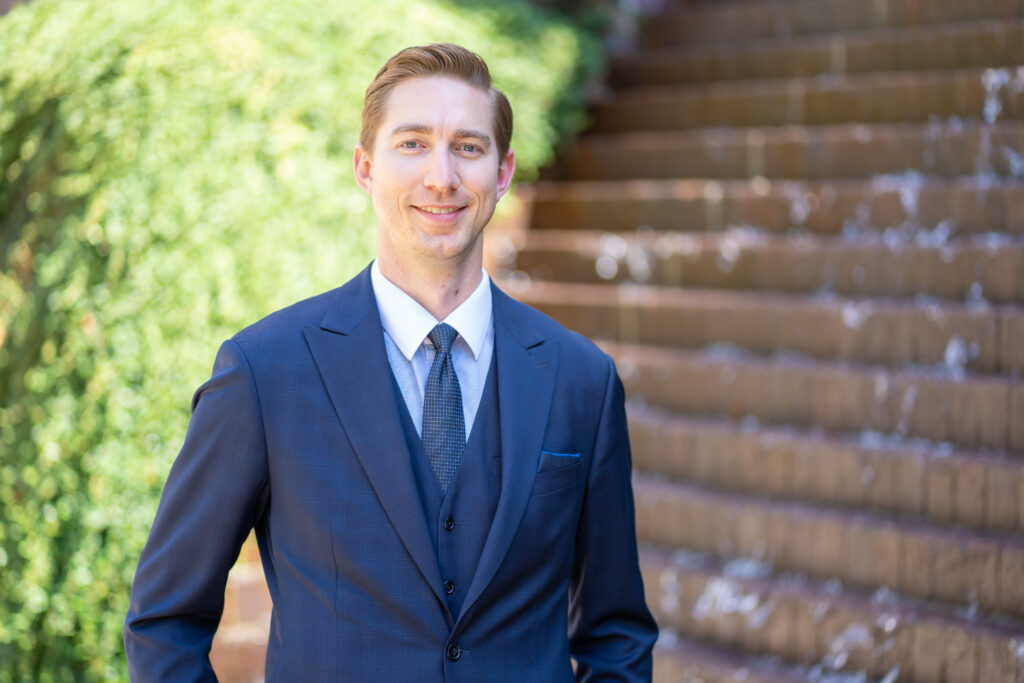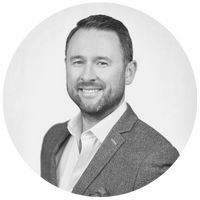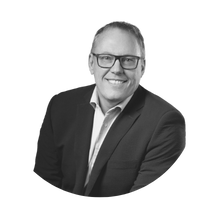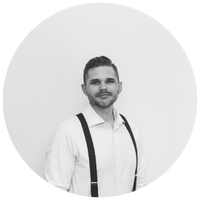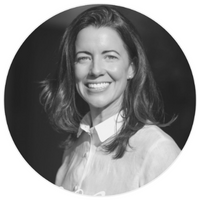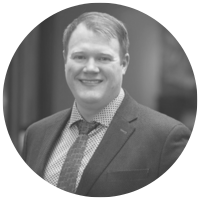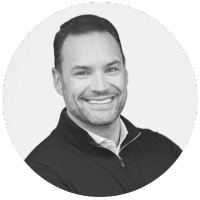In this episode of the Polestar Podcast, Kevin Parton, who recently joined VELA Wealth as a Partner and Senior Advisor, interviews Keith Allan, Portfolio Manager at Harness Investment Management, discussing their partnership with VELA Wealth and their unique approach to financial management. They address the challenges posed by rising interest rates and geopolitical events, highlighting the need to stay invested and avoid market timing. The conversation highlights the value of a balanced and diversified portfolio, offering valuable insights for podcast listeners.
About the Guest – Keith Allan
Keith Allan is a Portfolio Manager with Harness Investment Management. Harness has engaged in a strategic partnership with VELA Wealth and provides discretionary portfolio management for many of VELA’s clients. With more than 15 years of buy-side investment management experience, Keith brings a wealth of knowledge and experience to provide insight and guidance to clients regarding their investment portfolios. At Harness, Keith is responsible for developing and maintaining investment portfolios for VELA clients. Keith is dedicated to fostering long-term relationships with high-net-worth individuals and families by providing a clear and transparent vision to help them achieve their investment goals. To learn more, please visit Harness Investment Management team page.
About the Host – Kevin Parton
Kevin Parton, CFP professional, specializes in personal and business financial planning, tax reduction, and estate planning. Kevin is diligently concentrating on client education as a powerful strategy for building financial certainty. As no financial situation is the same, Kevin and his team monitor clients’ plans and implement personalized strategies to reduce their personal and corporate taxes, and protect their income, assets, and loved ones against the financial consequences of a serious illness, injury or death, ensuring clients maintain financial certainty and peace of mind. To read more, please visit the VELA team page.
The episode is also available on:
The Podcast Transcript
Kevin Parton:
Hello there. I am Kevin Parton, and welcome to the Polestar Podcast by VELA Wealth. My guest today is Keith Allan, Portfolio Manager from Harness Investment Management. Harness has an ongoing partnership with VELA Wealth. How are you doing today, Keith?
Keith Allan:
I’m well, Kevin, thank you for having me. How are you doing?
Kevin Parton:
I’m doing alright, thank you. I’m excited to use this as an opportunity to find out a little bit more about Harness as well as your perspectives on things that are going on in the global economy and markets. I am going to start off with a real quick question as I am new to VELA: how is Harness Investment Management and VELA different from others in your experience?
Keith Allan:
Well, I come from working almost close to a decade at one of the largest institutional money managers in Canada. So, coming over to Harness four and a half years ago allowed me to take a broader lens in terms of how investment management should be done, and especially for our client base. For us we’re very focused on the client experience. So, in terms of the overall, the values that lies in the family balance sheet and taking that sort of overarching approach to find out what’s important to families, and not just from an investment perspective but from planning, insurance and the path to where their family wants to be and where they want to get to. So, we are taking a top-down approach and looking at the overarching relationship and the portfolio, and the portfolio itself is just one part of the overall process and I think that’s what separates us – is being able to look at everything holistically and doing what’s best for the clients.
Kevin Parton:
In your experience, that is what attracted you to being a part of this relationship?
Keith Allan:
Yes. From a corporate standpoint, not having to pull the strings from the higher-ups that is what attracted me. We have an approach that we stand by on how we view financial management and we want to be able to not only articulate that to our clients but be in a position to execute it. Jason and Rob [Jason Boudreau, Founder, and Rob Wallis, Partner, at VELA Wealth] and obviously yourself not only approach investment management, but overall financial management and overall financial planning, and that is what attracted me. I’ve known Jason and Rob for a long time as individuals and professionals, and I am really aligned with their beliefs.
Kevin Parton:
I can’t agree more. I mean, having been in the business for 14 years myself and having consistently taken a holistic approach, I’m really excited to be able to have this partnership with you and bring a little bit of a higher level of sophistication to that pillar of financial planning or investment management. I’ll sort of use that as a segue into the next question about investment philosophy.
Can you distill your investment philosophy or Harness Investment Management philosophy into some core components or explain how it drives your investment decision-making?
Keith Allan:
For sure. When we talk about investments nowadays, we sort of see it coming out of COVID, right? We talk about the meme stocks, and we see people investing on tilt whether it’s cryptocurrency or any sort of the latest greatest fad in the investment world. That is not what we’re about. We’re very fundamentally driven, so we believe in long-term investing. Maybe that’s not going to win style points or have a credible amount of attractiveness, but it’s empirically proven that this going to hold true for the long term. We believe that proper diversification, whether it’s sector or country-specific, is important to your portfolio. We’re very, very strong believers in asset allocation. Not your typical antiquated or archaic structure such as a 70/30 portfolio, 70% equities, and 30% fixed income – no, we believe that there are other components to a portfolio.
Alternative assets are a big component of our portfolios. Right now cash is a yielding asset – all our clients hold a certain amount of cash. When we talk about alternatives, we talk about real estate, commodities, or using derivatives when appropriate in some circumstances. So, for us, it’s all about diversification. It’s all about asset allocation. It’s about incorporating those investment assets with your overall family balance sheet. Is your family heavily involved in or heavily invested in real estate? Well, we’re not going to hold 15% of your portfolio in private real estate or REITs, we’re going to take that into account. If you have a lot of insurance policies unwritten to your family or other types of fixed income or pseudo-fixed income assets – we’re not going to hold 50% bonds in your portfolio, right? We’re going to look at your overall balance sheet, where you’re at and what makes the most sense for you and your family.
Kevin Parton:
So, it seems that you’re really able to customize what’s held within the portfolio specific to the client and to everything else that they own.
Keith Allan:
Yes, 100%. So that’s, again, what separates us. We can offer those bespoke or customized portfolios to our clients, which allows them to feel that we are really taking the time to understand what’s important to them and what allows them to really benefit in the long run from achieving that excess return. So, we definitely take a customized approach to that. We do have model portfolios we use, but we’re able to tailor them and tweak them to meet the client’s needs. What separates us is our product shelf and what we do all for it is quite vast, so we have a lot of different options. I sort of compare it to an ice cream parlor. You go to a Baskin Robbins that offers not just chocolate, vanilla, and strawberry. You have 30 flavors to choose from. We like to think of ourselves as the investment management firm, that’s got a lot of different options at our disposal and meets the client’s needs.
Kevin Parton:
Fantastic. I want to circle back to something you said a little bit earlier about coming out of COVID and the meme stocks. It feels like there’s a lot more of a conversation around trying to invest in the next hot topic. And you talked about not wanting to do that and it’s not necessarily the coolest. How do you manage client expectations when it comes to having these discussions with them? I have to imagine that these things come up in conversations more often than maybe they did pre-COVID.
Keith Allan:
It is tricky, right? Everyone knows someone, got a brother-in-law, cousins, friends, or neighbor who made 40% plus off this stock or that stock. Now, in my experience, and I’ve been in the industry now for 20 years, I would say 90% of the time it’s not true. People love to exaggerate when it comes to that sort of stuff and in reality, there are just not that many people getting that wealthy off one or two hot stock tips.
Setting expectations is the key. Managing expectations is the key. Rob Wallis, who’s a Partner at VELA and someone you and I know both very well, uses a quote that I love, is that Warren Buffett made more money in the last 10 years than the previous… I can’t remember what it is… the previous 30 or previous 40 years. And I think that shows the effect of compounding interest and compounding return.
For us it’s really preaching that longevity and really advocating to stay the course, put money in, allow it to compound, allow it to grow, and look, if after five years you’re generating 10-11% annualized per year, well, that’s pretty good. Doing that over a long-term, two or three decades for a lot of our clients who are in their 30s or 40s, they are going to have a meaningful portfolio when it’s time to retire. I think having clients trust that and showing them what that actually means, understanding the effects of compounding return, it’s very challenging, right? For someone that investments may not be their first language, they’re trying to understand how the effect of compounding works, and showing them that can certainly be impactful.
Kevin Parton:
Well, along those same lines, I heard recently that PIMCO prides itself in any given year having the best portfolio, but over 5 or 10 years, it always being sort of in the top five or ten percent because they’re consistent because they practice good fundamentals and their goal isn’t to try and be the hot topic or sort of swing for the fences and I think to a degree that can feel maybe boring or anticlimactic in the short-term, but in the long-term, obviously that’s what you’re going for.
Keith Allan:
Absolutely.
Kevin Parton:
So, in a year like this one, we’ve seen some up and down swings in the markets and there’s been this perpetual conversation around interest rates and what that might have to do with the market trajectory. What’s your future outlook going through the last two months of this year and into 2024 based on everything that’s happened so far this year?
Keith Allan:
There’s no doubt that this has been an incredibly challenging year and incredibly challenging 18 months, right? We’ve had unprecedented interest rate increases. I should say, when you see interest rates rise that dramatically, that quickly, that is really a heavy load on risky assets, most notably fixed income assets, whose price and value move inversely to interest rates, so as interest rates continue to rise, we see fixed income really sell-off. It’s just the nature of the asset class. But also equities, right? Because if people can get that guaranteed five, six, seven, sometimes more percent at their bank, well, why are they taking the risk of putting their money in risky assets such as stocks? They can get that guaranteed yield from their banks sitting in cash where there’s virtually no risk. So, naturally, we see risky assets sell off and that’s what we’ve seen over the last 18 months. So yes, it has been a very, very, very challenging market. What do I see moving forward?
Well, I think last week [October 30 – November 3rd, 2023] was really telling because effectively the US Fed came out and said that they are standing pat. I know they said that a few times with mixed results, but they do sound like this time it’s certain. And we saw the market react accordingly – we saw a nice rally last week, and sort of from what I hear and read and see, there’s a really good chance that’s going to be sustainable here as we go into the new year. We might see a little Santa Claus rally earnings are better than expected, right? There are some really strong earnings that come out where a lot of analysts and a lot of folks on Wall Street have said “OK, this is better than we thought”, which is sort of been the impetus for the market to react favorably.
As we get into this holiday season, the spending season, that’s going to be very telling. I believe people are willing to go out and spend at Black Friday and Cyber Monday leading into Christmas. And if so, are these companies that rely on consumer discretionary spending going to really see an uptick in their profitability as we go into Q1 2024? Are people willing to spend $1,500 on the newest iPhone?
Are they willing to go buy whatever the latest and greatest PlayStation or Xbox is out there? Are they willing to really splurge this year on family trips and maybe buy a new car? And do other things that they’ve otherwise been putting off? Again, that could be the impetus or sort of the push for a strong Q1. Especially if interest rates stay status quo, people might say “Look, the worst is behind us now”, but a lot of people are saying no, we’re not even close, there’s going to be further interest rate hikes.
The problem is that as mortgages come due, if interest rates continue to go up, people are not going to be able to renew and we’re going to see some really challenging times from a real estate perspective. At the end of the day, the Federal Bank and the US Fed don’t want to see people default on their mortgages, they don’t want to see people not be able to renew their mortgages. So they will have to weigh that with any future interest rate hikes.
I remain optimistic. I like to consider myself an optimist despite what some folks may say. I’m optimistic that we will see a catalyst here leading into the end of the year in the beginning of Q1 where we’ll see a little bit of bounce back in the market. I still think there’s a lot of volatility left, I don’t think it’s going to be clear sailing and the next bull market is right around the corner. But I do believe there will be a bull market at some point here in the next 18 to 24 months and that’s something that we’re really preaching to clients – “Look, you going to sort of ride the waves here. You kind of got to keep your head above water. Don’t panic. Can’t take the money out of the market. Let it do its thing. So, you can capture that bull market when it does happen because that’s when you can really start seeing some meaningful returns.”
Kevin Parton:
Well, I was going to ask about that because with interest rates being as high as they are, cash is returning more than it has in a long time. But relative to what? What we saw last week in two days, there was a big uptick in the market. And if you’re in cash and on the sidelines you miss those moments. How do you position in conversation or within your portfolios taking advantage of a high interest rate environment from a cash perspective, but also being cognizant of the fact that you can miss some big equity days and lose out on growth there?
Keith Allan:
It can be a challenging conversation with clients because our job is to enlighten them. At the end of the day, it’s the client’s money. I can’t say to a client, you have to do this and you have to do that, right? All we can do is offer guidance and perspective, and show empirically what returns mean what asset classes do, and what it means that if you are sitting in cash and you missed the first two days of a three or four-week rally, what that means to your portfolio. At the end of the day, the client has to make the choice and if we haven’t enlightened them and we haven’t shown them, then that’s on us. We haven’t done our job. But if we have and they still decide to go against our advice that’s their prerogative. I think for us it’s really important that we show them that cash is important to have and now it’s probably a higher weight than we otherwise would, whether that’s 5% or 7% or 10%. But at the end of the day, you want to be diversified and you want to have exposure. To your point when those risky assets do rally you’re really capturing it. So, sitting down and understanding what their cash needs are, making recommendations in terms of what we feel is an appropriate cash balance. Right now, that’s anywhere between 5 and 10% for clients depending on their situation.
Now, of course, if clients need cash imminently, if they’re buying a house or doing a renovation they’re going to hold more cash and that’s entirely appropriate because they need that cash. So, we’re not going to invest it and put risk on the table when they need that cash. But all other things being equal, we need to show them that they want to have cash available and some dry powder available to take advantage of positions that we feel are undervalued. At the end of the day, we want them to still remain fully invested, and that might mean diversifying in other asset classes. That might mean underweighting or overweighting certain positions, but we’re never advocates of trying to time the markets such as selling everything you got. If a client has a $1,000,000 portfolio, put it all in cash and try and time it on the way up, and try and get it out on the way down like that’s a fool’s game. Nobody going to win at that game. Not even the most sophisticated investors can win at that game.
Kevin Parton:
Absolutely. Well, in the interest of time, I have two more quick questions here. One in relation to what happened when rates went up? When rates went up, fixed income went down, but we also saw equities go down at the same time and there’s only been a number of years in history we’ve seen fixed income and equities go down at the same time. Is it likely, if not possible, that as interest rates come back down, we’re going to see the opposite happen? We’re going to see businesses that have lower interest rates to pay on their debt and so business growth will happen and retail investors can get into the markets more, but we’ll also see the opposite in fixed income when interest rates go down, fixed income yields get better.
Keith Allan:
Yes, in theory, your logic is correct. The one thing that I would caution about is that there are a lot of… and again I remain bullish and I do think there’s opportunity ahead. I do think that people will be compensated and rewarded for staying the course and staying in the market. But what I do caution is that there are all other variables that play geopolitically right now. We have two very large wars unfolding, unfortunately. One that continues to rear its head in Eastern Europe and Ukraine and the other one in Israel and that sort of leads to all bets being off. When you have these significant geopolitical events that are unfolding, and yes they are half a world away from what we’re here in North America, but it’s kind of the knee bones connected to the ankle bones connected to the elbow, where all does cascade itself down. I would caution against interest rates going down, we’re going to see a massive bull market rally and everything’s going to go up, fixed income is going to go up, currency is going to go up, and equities are going to go up. I would say let’s just maybe pump the brakes a little bit because we do have two wars that are going on that from supply chain standpoints, from energy, oil is still largely driven from the Middle East and Eastern Europe, especially Russia. Oil has such a cascading effect on the rest of the global economy. When that’s impacted as much as it has been, we have to caution there. But yes, in theory, if interest rates start getting cut like you would think, risky assets would perform well. But we’re living in a world where there are so many other variables that it’s hard to make that type of forecast.
Kevin Parton:
Well, it’s like you were reading my questions because that’s what I was going to ask you – how do the geopolitical events impact what’s going in the market? And as you said a little bit earlier, I think there’s always something to consider in the short-term, but in the bigger picture, trying to time the market based on what’s happening locally or geopolitically isn’t necessarily the strategic move.
Keith Allan:
Just to reiterate what I said – we never advocate timing the markets like it’s time in the market, not timing the market. My good friend Jason Boudreau, Founder of VELA, likes to use that phrase. I actually quite like it. It’s time in the markets, right? We want to be in the market. You want to be deployed. You want to allow your assets to work for you. I think that’s the biggest thing that we advocate. Again, we’re going to diversify, we’re going to balance the portfolios accordingly, and we may shift weights around, we may be overweight or underweight just depending on what’s going on. But we’re never going to say “Ok, we are going all cash” to our clients and then “Nope, now we’re going back in”, because that doesn’t make us look sophisticated and makes us look like we’re reactionary in our investment management and not proactive. Again, statistically, it’s showing that is not the correct way to manage money and certainly to make meaningful returns for our clients. It is not going to allow us to do that.
It’s unfortunate what’s unfolding in the rest of the world, and my heart goes out to these families and to what’s happening it’s tragic. It is something we have to be cognizant of, what effect does that have on North American markets and global markets, as we do deploy capital for our clients?
Kevin Parton:
Yes, absolutely. I think a really important point to consider is when we’re having those conversations with clients, being able to talk directly to someone like you who can explain how that impacts the construction of their portfolio or the investment philosophy or decisions, understanding why things are the way that they are in your portfolio. I think it is going to make a big impact on how you react. We talked earlier about people wanting to move to cash, but we need to sort of enlighten them on how to structure their portfolios. So, if you’re sort of able to guide them through that process, it becomes a much easier decision for them to make good long-term choices.
Keith Allan:
Absolutely.
Kevin Parton:
Well, really appreciate your time today, Keith. Thank you so much for sharing all this valuable information.
Keith Allan:
Yes. Thank you, Kevin. Thank you for having me, Kevin, and I hope our clients enjoy it and if they’re not clients, hopefully they enjoy it as well.
Kevin Parton:
Absolutely. Take care.
Disclaimer
The information provided in the podcast transcript is designed for general informational purposes only and is not intended to provide specific advice or recommendations for any individual or on any specific security or investment product.

